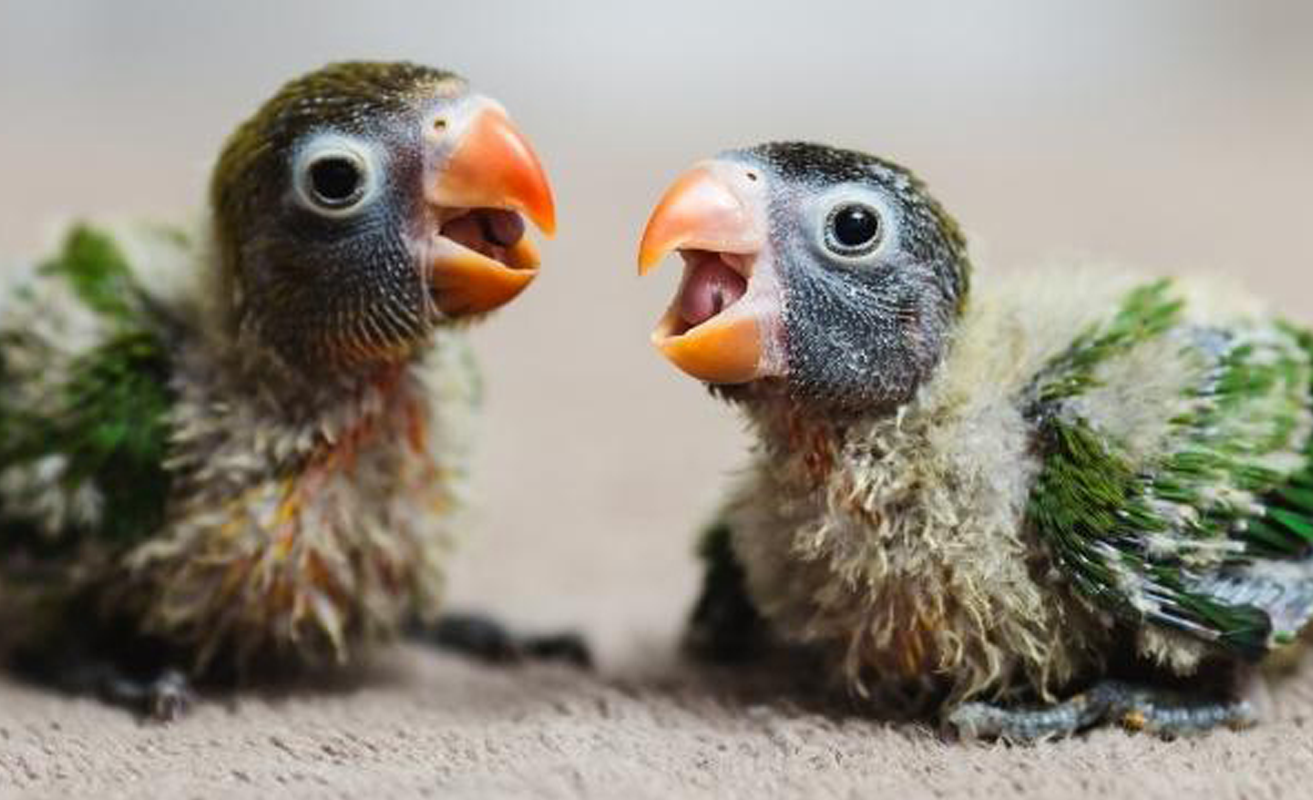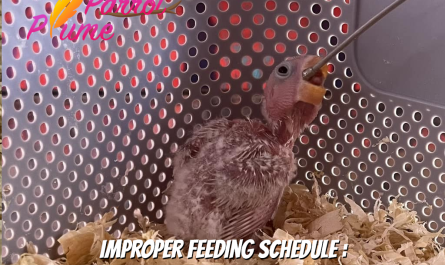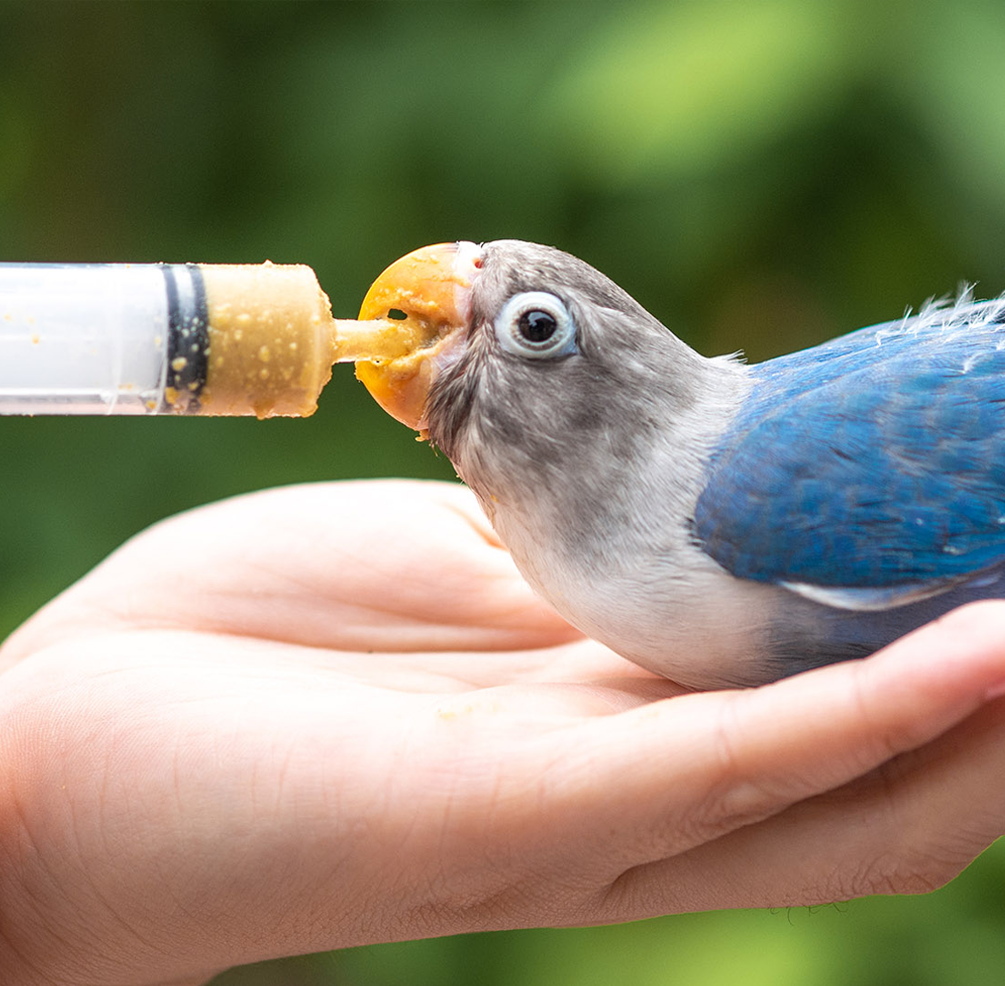Hand-feeding birds can be a rewarding experience, strengthening the bond between you and your feathered friend. However, it’s essential to approach this task with care and knowledge to ensure your bird’s health and well-being. In this article, we’ll explore common mistakes to avoid when hand-feeding birds, helping you provide the best care for your avian companions.
1. Using the Wrong Formula
One of the most critical mistakes in hand-feeding is using the wrong formula. Birds require a specific balance of nutrients, and using an improper formula can lead to malnutrition or other health issues. Always use a high-quality, species-specific formula recommended by avian veterinarians. Ensure that the formula is fresh and prepared according to the manufacturer’s instructions.
2. Feeding at Incorrect Temperatures
Feeding birds formula that is too hot or too cold can cause digestive issues and discomfort. The formula should be at the appropriate temperature—typically close to body temperature. Always test the temperature by placing a few drops on your wrist to ensure it’s neither too hot nor too cold before feeding.
3. Overfeeding or Underfeeding
Overfeeding or underfeeding can have detrimental effects on a bird’s health. Ensure you’re feeding the correct amount based on the bird’s age, species, and size. Follow the guidelines provided by your veterinarian or the formula manufacturer to determine the appropriate feeding schedule and quantities.
4. Neglecting Hygiene
Maintaining proper hygiene is crucial when hand-feeding birds. Failure to clean feeding equipment thoroughly can lead to bacterial contamination and health issues. Always wash bottles, syringes, and utensils with hot, soapy water and sanitize them regularly to prevent infections.
5. Handling the Bird Roughly
Gentle handling is essential to ensure the bird’s comfort and safety. Rough handling can cause stress or injury to the bird. Always support the bird properly during feeding and avoid sudden movements or loud noises that could frighten it.
6. Ignoring Signs of Health Problems
Regularly monitor your bird for signs of health problems such as changes in weight, droppings, or behavior. If you notice any abnormalities, consult with an avian veterinarian promptly. Early intervention can prevent serious health issues and ensure your bird’s well-being.
7. Failing to Provide Proper Temperature Control
Birds are sensitive to temperature changes, and feeding them in a drafty or too-cold environment can be harmful. Ensure that the feeding area is warm and draft-free to keep your bird comfortable during and after feeding.
8. Not Following a Feeding Schedule
Consistency is key when hand-feeding birds. Establish and stick to a regular feeding schedule to provide stability and predictability for your bird. Disruptions in the feeding routine can cause stress and impact the bird’s growth and development.
9. Using Contaminated Water
Always use clean, fresh water for mixing the formula and for the bird to drink. Contaminated water can introduce harmful bacteria and cause health problems. Change the water regularly and ensure that containers are clean.
10. Ignoring Socialization Needs
Hand-feeding is not just about providing food; it’s also an opportunity to socialize with your bird. Spend quality time interacting with your bird during feeding sessions to build trust and strengthen your bond. Avoid isolating the bird during feeding times.
Conclusion
Avoiding these common mistakes will help ensure that your hand-feeding experience is successful and beneficial for your bird. By providing the right formula, maintaining proper hygiene, and handling your bird with care, you can foster a healthy and positive relationship with your feathered friend. Always consult with an avian veterinarian for personalized advice and guidance tailored to your bird’s needs.
Share this content:




